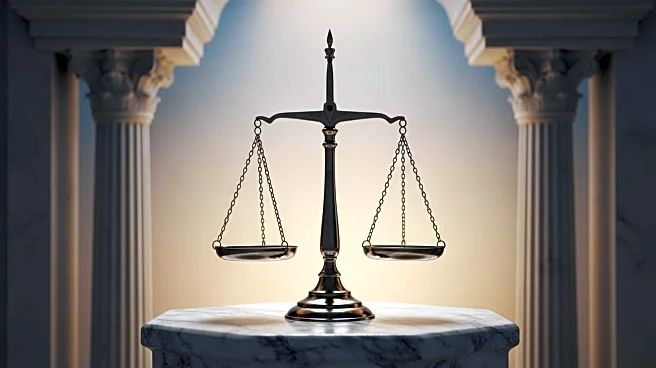What's Happening?
The U.S. Supreme Court is set to hear a significant case, Louisiana v. Callais, concerning the Voting Rights Act and its implications for Black representation in Louisiana. The case arises from a dispute over the state's congressional map, which currently includes only one majority-Black district out of six, despite Black individuals constituting about one-third of the population. A federal district court and the 5th U.S. Circuit Court of Appeals previously suggested that Louisiana could feasibly create a second majority-Black district. However, when the GOP-controlled legislature attempted to do so, a panel of federal judges ruled that the new map improperly sorted voters based on race. The Supreme Court's decision could potentially alter the application of the Voting Rights Act, particularly Section Two, which aims to prevent the dilution of minority votes.
Why It's Important?
The outcome of this case holds significant implications for U.S. politics and racial representation. A ruling that narrows or strips vote dilution protections from the Voting Rights Act could reduce the number of racial minorities in office, impacting representation at all government levels. This could also provide the GOP with an electoral advantage, potentially aiding efforts to maintain control of the closely divided U.S. House. The case is pivotal in shaping future redistricting cases nationwide, as it challenges the balance between creating districts that comply with the Voting Rights Act and adhering to constitutional bans on racial discrimination.
What's Next?
The Supreme Court's decision could lead to changes in how legislative districts are drawn, affecting upcoming elections. If the court sides with Louisiana, states may have the opportunity to redraw districts before the 2026 mid-term elections, potentially benefiting Republican redistricting efforts. This could result in a significant shift in the political landscape, with estimates suggesting Republicans could gain additional House seats, cementing control for years to come.
Beyond the Headlines
The case highlights ongoing debates about racial discrimination and representation in U.S. politics. It underscores the challenges of balancing race-based considerations in districting with constitutional principles. The decision could influence broader discussions on race and electoral fairness, impacting civil rights protections and minority political power.










